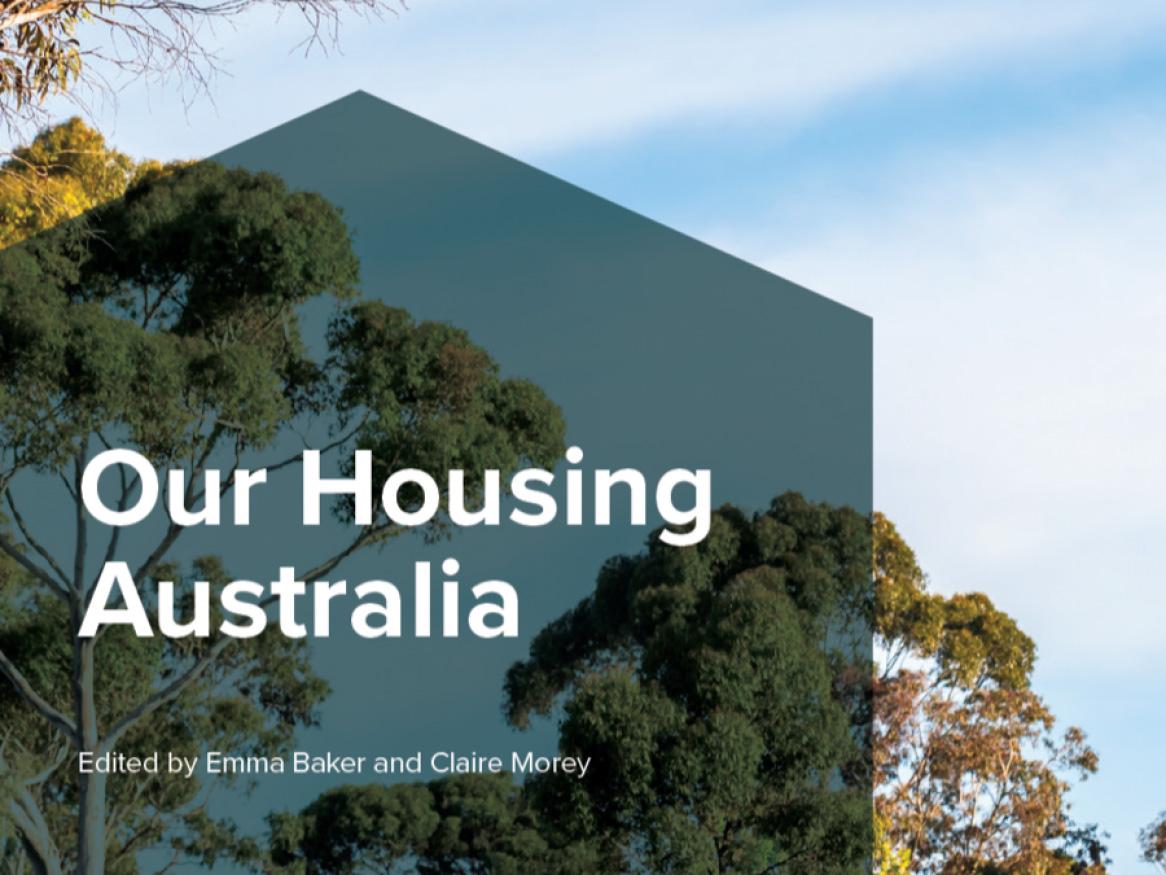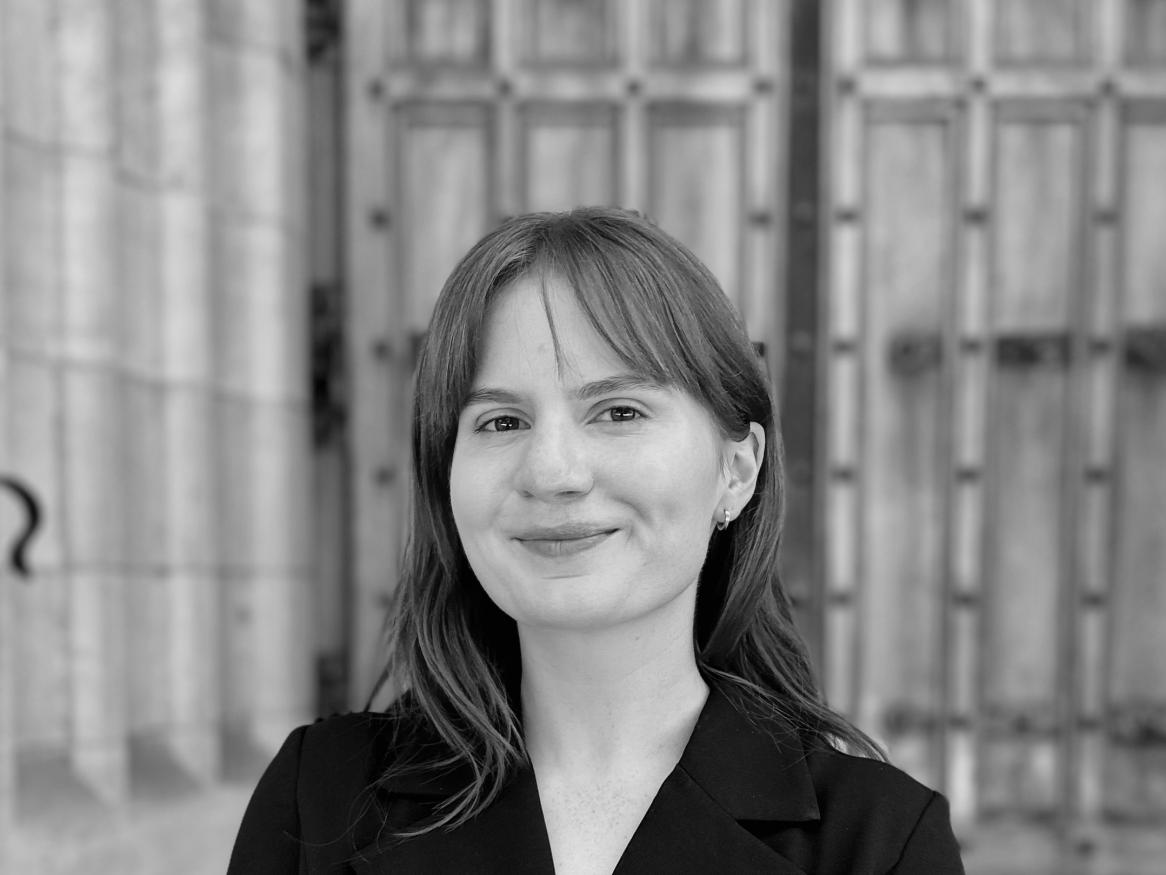Australian Housing Conditions Dataset
In 2024, the Australian Housing Conditions Survey collected data from another 20,000 households. This research project is the biggest national survey collecting information on housing conditions across all Australian states and territories.
2024 AHCD release
The Australian housing system is rapidly evolving. Renting is now the fastest growing tenure in Australia, with more than one third of Australians now renting their homes. Although it was once expected that renting was a transitionary tenure that preceded home ownership, Australians are now more likely than ever to be long-term renters or rent for the whole of their adult lives. Housing quality and conditions are also highly variable, with issues such as cold, mould, and damp contributing to poor health outcomes for many Australians.
The 2024 dataset is the most recent release in the Australian Housing Conditions Data Infrastructure. The AHCD provides the knowledge base and comparison sample for national and international research in order to allow better urban, economic and social policy development.
The 2024 dataset is now available to users through the Australian Data Archive.
Access the 2024 dataset Read the 2024 technical report Previous datasets (2016, 2020, 2022)
Our Housing Australia report
To celebrate the public release of the 2022 dataset we invited 20 leading housing commentators and researchers to explore the data and contribute short reflections on the state of Australian housing, homes and households. The collection of insights contained in this book give us a valuable and broad view of housing in contemporary Australia.
Have you cited the Australian Housing Conditions Dataset in a publication?
Please select the relevant citation below then email achr@adelaide.edu.au to notify the research team about your publication. This is required by the dataset conditions of use, and will help us to keep the AHCD publications library up to date.
Australian Housing Conditions Dataset 2024
Baker, Emma; Daniel, Lyrian; Beer, Andrew; Bentley, Rebecca; Stone, Wendy; Rowley, Steven; Nygaard, Andi; London, Kerry, 2025, "The Australian Housing Conditions Dataset 2024”, https://doi.org/10.26193/HSMZGA, ADA Dataverse, V1.
Australian Housing Conditions Dataset 2022
Baker, Emma; Daniel, Lyrian; Beer, Andrew; Bentley, Rebecca; Stone, Wendy; Rowley, Steven; Nygaard, Andi; London, Kerry, 2023, "The Australian Housing Conditions Dataset 2022", https://doi.org/10.26193/SLCU9J, ADA Dataverse, V1.
Australian Rental Housing Conditions Dataset 2020
Baker, Emma; Beer, Andrew; Baddeley, Michelle; London, Kerry; Bentley, Rebecca; Stone, Wendy; Rowley, Steven; Daniel, Lyrian; Nygaard, Andi; Hulse, Kath; Lockwood, Tony, 2020, "The Australian Rental Housing Conditions Dataset", https://doi.org/10.26193/IBL7PZ, ADA Dataverse, V3.
Australian Housing Conditions Dataset 2016
Baker, Emma; Beer, Andrew; Zillante, George; London, Kerry; Bentley, Rebecca; Hulse, Kathleen; Pawson, Hal; Randolph, Bill; Stone, Wendy; Rajagopolan, Priya, 2019, "The Australian Housing Conditions Dataset", https://doi.org/10.26193/RDMRD3, ADA Dataverse, V1.
The research team
This project is being conducted by researchers from the University of Adelaide, the University of South Australia, the University of Melbourne, Swinburne University of Technology, Curtin University and Torrens University led by Professor Emma Baker. The research is funded by the Australian Research Council’s Linkage Infrastructure, Equipment and Facilities scheme in partnership with the universities.
Professor Emma Baker
Emma Baker is Professor of Housing and has a PhD in Geography and BA (Hons.) from the University of Adelaide. She has previously held NHMRC and ARC Fellowships focused on examining the relationship between health and housing. She led the 2016 ARC LIEF funded project ‘An Australian Housing Conditions Data Infrastructure’ and its 2020 follow up, 'An Australian Rental Housing Conditions Data Infrastructure'. She has expertise in collecting, managing and analysis of large housing datasets.
Associate Professor Lyrian Daniel (University of South Australia)
Lyrian Daniel is a research-intensive Associate Professor in Architecture in UniSA Creative. Lyrian Daniel will use this Data Infrastructure, enhanced with linked environmental data, to explore the complex interactions between housing and household characteristics that affect indoor environmental quality, and contribute evidence for the development of a national standard for indoor thermal environments.
Professor Andrew Beer (University of South Australia)
Andrew Beer is the Executive Dean of UniSA Business. He has led major research projects focused on tenure effects and housing assistance. His research interests include the operation and functioning of Australia’s housing markets (including the provision of housing for persons with a disability), the drivers of regional growth, structural change within the economy, and the impacts of an ageing population.
Professor Rebecca Bentley (University of Melbourne)
Rebecca Bentley has a strong interest in quantitative research methods and multi-disciplinary collaborations are a key focus in each of these themes. Bentley will bring a health perspective to the development of the proposed Data Infrastructure to enable its use within the field of population health research to answer important questions about how conditions in the rental market shape population health in contemporary Australia.
Professor Wendy Stone (Swinburne University of Technology)
Wendy Stone’s research is highly industry engaged with substantial applied government and policy research experience. Stone will use the Data Infrastructure to extend existing evidence around housing, home and household wellbeing among lower income households in rental sub-markets, focusing on vulnerable population groups including families and children, people living with disability, single persons, elderly and migrant households.
Professor Steven Rowley (Curtin University)
Steven Rowley has extensive experience of leading, designing, administering and analysing large-scale surveys in the area of housing affordability, including three surveys of over 3,000 respondents in the last four years. Rowley's research focus for this dataset is on developing evidence on rental quality and wellbeing outcomes.
Professor Andi Nygaard (University of New South Wales)
Andi Nygaard’s research includes the processes of urban and housing systems change with a focus on long-term neighbourhood dynamics, housing market efficiency and affordability, international migrants in housing, neighbourhoods and labour markets, and institutional economics of governance adaptations in the provision of social housing.
Professor Kerry London (University of New South Wales)
Kerry London has a long history of research in construction project management research and has successfully obtained and acquitted projects (e.g. ARC Discovery and Linkage projects, CRC for construction innovation, Department of Industry, Australia China Science and Research Fund). In the last five years, London has led housing projects on innovation, off-site manufacturing, building information modelling, and collaborative practices.
Ms Claire Morey
Claire completed her Master of Philosophy in History at the University of Adelaide in 2021. Her area of expertise is domestic violence in nineteenth-century South Australia, with a particular focus on economic abuse and divorce. Claire's role in the project is as project officer, assisting in the management of the day-to-day activities of the project, including ethical approvals, survey commissioning and reporting to the CI team.
User publications
To see how researchers have used the 2016 and 2020 Survey data, view the AHCD publications library below.
-
Aplin, T., Lowies, B., & McGreal, S. 2022. The home environment: influences on the health of young-old and old-old adults in Australia. Ageing and Society. doi:10.1017/S0144686X22000757.
-
Azimi, A., C.K.H., Tyvimaa, T., Skitmore, M. 2024. Adoption of energy-efficiency measures by Australian low-income households. Journal of Housing and the Built Environment. doi:10.1007/s10901-023-10104-3.
-
Baker, E., Daniel, L., Beer, A., Bentley, R., Rowley, S., Baddeley, M., London, K., Stone, W., Nygaard, C., Hulse, K. and Lockwood, A., 2022. An Australian rental housing conditions research infrastructure. Scientific data. doi:10.1038/s41597-022-01136-5.
-
Baker, E., Morey, C., Daniel, L. et al. 2023. An Australian housing conditions data infrastructure. Scientific Data. doi:10.1038/s41597-023-02739-2.
-
Barlow C.F., Daniel, L., Baker, E. 2023. Cold homes in Australia: Questioning our assumptions about prevalence, Energy Research & Social Science. doi:10.1016/j.erss.2023.103124
-
Bower, M. et al. 2023. The Social Determinants of Loneliness during COVID-19: Personal, Community, and Societal Predictors and Implications for Treatment. Behaviour Change. doi:10.1017/bec.2023.3
-
Bower, M., Buckle, C., Rugel, E., Donohoe-Bales, A., McGrath, L., Gournay, K., Barrett, E., Phibbs, P., & Teesson M. 2023. ‘Trapped’, ‘anxious’ and ‘traumatised’: COVID-19 intensified the impact of housing inequality on Australians’ mental health, International Journal of Housing Policy. doi:10.1080/19491247.2021.1940686.
-
Coulburn, L. & Miller, W. 2022. Prevalence, Risk Factors and Impacts Related to Mould-Affected Housing: An Australian Integrative Review. International Journal of Environmental Research and Public Health. doi:10.3390/ijerph19031854.
-
Coulburn, L., Miller, W. & Susilawati, C. 2024. Onset characteristics and breadth of occupants’ long-lasting building-related symptoms attributed to living in damp housing conditions in Australia: Qualitative insights. Building and Environment.
-
Daniel, L. Baker, E., Beer, A., Thien Anh Pham. N. 2019. Cold housing: evidence, risk and vulnerability’. Housing Studies. doi:10.1080/02673037.2019.1686130.
-
Daniel, L., Baker, E., & Williamson, T. 2019. Cold housing in mild-climate countries: A study of indoor environmental quality and comfort preferences in homes, Adelaide, Australia. Building and Environment. doi:10.1016/j.buildenv.2019.01.037.
-
Gower, A. 2022. Energy Justice in Apartment Buildings and the Spatial Scale of Energy Sustainable Design Regulations in Australia and the UK. Frontiers in Sustainable Cities. doi:10.3389/frsc.2021.644418
-
Grander, M. & Stephens, M. 2023. The Routledge Handbook of Housing and Welfare. 71-87. Routledge, Abingdon.
-
Hulse, K., Veeroja, P. & Goodall, Z. 2023. Housing and Welfare in Australia. In The Routledge Handbook of Housing and Welfare. Edited by Martin Grander and Mark Stephens. 71-87. Routledge, Abingdon.
-
James L., Daniel, L., Bentley, R. & Baker, E. 2023. Housing niches: new directions for housing and urban policy, International Journal of Housing Policy. doi:10.1080/19491247.2023.2254466.
-
Lang, M. et al. 2022. Pro-social concerns characterise landlords’ energy efficiency retrofit behaviour: evidence and implications for energy efficiency Policy in Victoria, Australia. International Journal of Housing Policy. doi: 10.1080/19491247.2022.2162197
-
Moore, R. 2023. The animal in the walls: On the rise of the fungal gothic. Griffith Review. 82, 118-128. doi:10.3316/informit.382914838573452
-
Mishra, S.R., Wilson, T., Andrabi, H., Ait, D., Ang Li, O., Akpan, E., Bentley, R. and Blakely, T. 2023. The total health gains and cost savings of eradicating cold housing in Australia. Social Science & Medicine. doi:10.1016/j.socscimed.2023.115954.
-
Oswald, D., Moore, T., & Baker, E. 2022. Exploring the well-being of renters during the COVID-19 pandemic. International Journal of Housing Policy. doi:10.1080/19491247.2022.2037177.
-
Poruschi, L. and Gardner, J., 2022. Energy Disadvantage and Housing: Considerations Towards Establishing a Long Run Integrated Analysis Framework. Australian Economic Review. doi:10.1111/1467-8462.12494.
-
Singh, A. Mizdrak, Daniel, L., Blakely, T., Baker, E., Fleitas Alfonzo, L., & Bentley, R. 2022. Estimating Cardiovascular health gains from eradicating indoor cold in Australia. Environmental Health. doi:10.1186/s12940-022-00865-9.
-
Valente, C.P., Morris, A., & Wilkinson, S. J. 2022. Energy poverty, housing and health: the lived experience of older low-income Australians. Building Research & Information. doi:10.1080/09613218.2021.1968293.
-
Veeroja, P., Goodall, Z., Guity-Zapata, N.A. & Stone, W. 2023. Private renters in shared housing: investigating housing conditions and mental well-being in Australia during COVID-19. Journal of Housing and the Built Environment. doi:10.1007/s10901-023-10038-w
-
Veeroja, P. et al. Forthcoming. Growing housing precarity amongst older people in homeowner nations (Friendly and Pimentel Walker Eds.) The Handbook of Precarious Housing.
-
Viljoen, C., Lowies, B., Lushington, K., & McGreal, S. 2020. Female perspectives on housing quality and household characteristics, perceptions and challenges: Evidence from Australia’. Habitat International. doi:10.1016/j.habitatint.2020.102276.
-
Baker, E, Bentley, R, Beer, A & Daniel, L. 2020. Renting in the time of COVID-19: understanding the impacts. AHURI Final Report No. 340. doi:10.18408/ahuri3125401
-
Baker, E., Beer, A., Leishman, C., Vij, A., Stone, W., Morey, C., Veeroja, P., Indraratna, K., Dunn, J., & Pomeroy, S. 2024. Planning for a two-tenure future. AHURI Final Report No. 431. doi:10.18408/ahuri3130901
-
Baker, E. & Daniel, L. (Eds.) 2020. Rental Insights: A COVID-19 Collection, The Australian Housing and Urban Research Institute Limited, Melbourne. 10.18408/ahuri3125402.
-
Baker, E. & Morey, C. (Eds.) 2023. Our Housing Australia. The Australian Centre for Housing Research. University of Adelaide. doi:10.25909/24657108.
-
Brierty, R., Buckland, A., Crowe, A., Duncan, A., & Rowley, S. 2023. Housing Affordability in Western Australia 2023: Building for the future. Bankwest Curtin Economics Centre. https://bcec.edu.au/publications/housing-affordability-in-western-australia-2023-building-for-the-future/.
-
Cavanough, E. & Douglass, M. 2025. Rewarding renters: how the Commonwealth can make renting easier and fairer for all Australians. The McKell Institute. https://apo.org.au/sites/default/files/resource-files/2025-01/apo-nid329500.pdf
-
Crowe, A. & Rowley, S. 2024. Measuring housing affordability: Scoping the real cost of housing. AHURI Final Report No. 427. doi:10.18408/ahuri8128801
-
Daniel, L., Lang, M., Barlow, C., Phibbs, P., Baker, E., & Hamilton, I. 2024. A national roadmap for improving the building quality of Australian housing stock. AHURI Final Report No. 426. doi:10.18408/ahuri3232301
-
Daniel, L, Moore, T, Baker, E, Beer, A, Willand, N, Horne, R and Hamilton, C. 2020. Warm, cool and energy-affordable housing policy solutions for low-income renters. AHURI Final Report No. 338. doi:10.18408/ahuri-3122801
-
Dignam, J. 2020. Home-Baked: Housing, Heat and Health. Better Renting. Funded by Energy Consumers Australia Limited and the ACT Government. Report: "Home- Baked: Housing, Heat, and Health" - Better Renting.
-
Dreesen. S. & Heylen, K. 2021. De impact van de COVID-19 crisis op de woonsituatie van Vlamingen, Een analyse van de Grote Coronastudie. Leuven: Steunpunt Wonen. https://archief.steunpuntwonen.be/Documenten_2016-2020/Studiedagen/Webinar_Wonen_na_corona_25_februari_2021/paper-dreesen-heylen-de-impact-van- de-covid-19.pdf.
-
Dyrenfurth, N. 2020. ‘Rental Nation: A Plan for Secure Housing in Australia. John Curtin Research Centre Policy Report no. 5. https://national.sda.com.au/wp-content/uploads/2020/09/Rental-Nation-A-Plan-for-Secure-Housing-in-Australia.pdf.
-
Hohmann, J. The Right to Housing in Australia. 2025. Human Rights Law Centre. https://www.hrlc.org.au/reports-news-commentary/the-right-to-housing-in-australia
-
Hunter, S. 2019. Media-engaged home renovation and the transition to zero carbon homes: Understanding change in everyday practices at home. (Doctoral Dissertation, RMIT University).
-
Kuiri, L. & Leardini, P. 2023. Adaptable and scalable housing for Australian households and stages of life. 55th International Conference of the Architectural Science Association. Perth, WA. https://archscience.org/wp-content/uploads/2023/03/12-Adaptable-and-scalable-housing-for-Australian-households-and-stages-of-life.pdf
-
Liu, E. et al. 2023. Poverty and Australian housing: findings from an Investigative Panel. AHURI Final Report No. 410. doi:10.18408/ahuri7130501
-
Liu, E., Martin, C., & Easthope, H. 2019. Poor-quality housing and low-income households. Shelter Brief No. 63. City Futures Research Centre. https://shelternsw.org.au/wp-content/uploads/2020/09/Poor-quality-Housing-and-Low-Income-Households-Review-of-Evidence-and-Options-for-Reform-2019.pdf.
-
Martin, C. et al. 2023. Towards an Australian Housing and Homelessness Strategy: Understanding National Approaches in Contemporary Policy. AHURI Final Report No. 401. doi:10.18408/ahuri7127901
-
Moore, T. et al. 2023. Optimising housing assessment to drive low carbon energy efficient housing upgrades. RMIT University for Department of Environment, Land, Water and Planning. https://www.homescorecard.gov.au/__data/assets/pdf_file/0035/688661/Optimising-housing-assessment-to-drive-low-carbon-housing-upgrade-2023_final.pdf
-
Pexa and Longview. 2023. Private Renting in Australia – A Broken System, Pexa and Longview White paper. Whitepaper-2-Private-renting-in-Australia-a-broken-system_compressed-sm-1679450145.pdf (pexa.com.au)
-
Roche, D., Dwyer, S., Rispler, J., Chatterjee, A., Fane, S. & White, S. 2023. Domestic Hot Water and Flexibility. Report prepared for ARENA by UTS Institute for Sustainable Futures. Domestic Hot Water and Flexibility | University of Technology Sydney (uts.edu.au)
-
Thomson-Settle, J. W. 2024. Supply, Demand and Affordability: How Does New Suburb Supply Affect Property Prices? (Research Paper – Master of Arts, International Institute of Social Studies).
-
Valente, C.P. 2022. Energy poverty and older Australians: The extent, causes and impacts (Doctoral dissertation, University of Technology Sydney).
-
Veeroja, P., Stone, W. & Reynolds, M. 2025. Priced Out, Run Down: Older Australians in unaffordable and poor-condition housing. Swinburne University of Technology, Melbourne. DOI: forthcoming.










